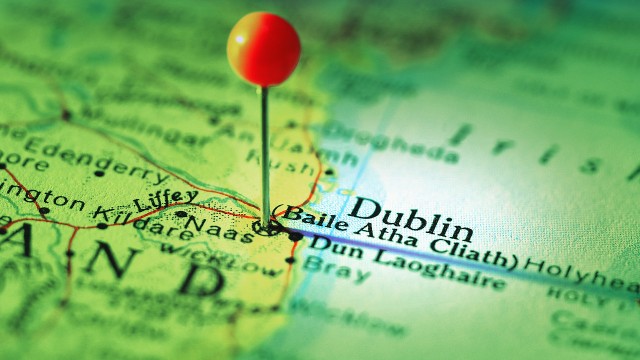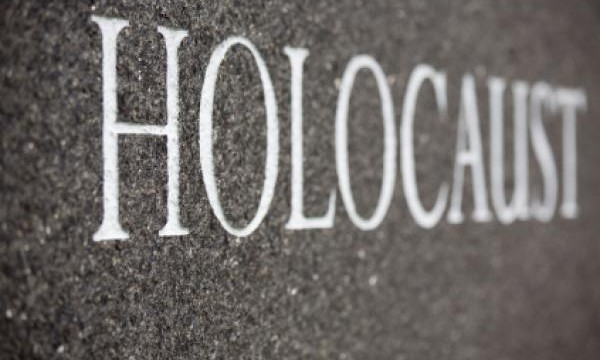Some years ago, a friend, who sometimes unintentionally (I think) sets me up in uncomfortable situations, introduced me to an Irish lass in the only Irish bar in town. She was straight off the boat, taking classes for a term or two at the local college. “He’s Irish,” my Italian friend said with enthusiasm. The girl looked me up and down from head to foot, gave me the dirtiest look I’ve ever received, and said with scorn in her voice and a scowl on her face, “Black Irish.”
 The word ‘black’ was uttered with such contempt that for the first time in my life I felt an intimation of what it’s like to be called a nigger. Since ‘black Irish’ was a term of pride in my dark-skinned, dark-haired and dark-eyed family, I thought I may have been imagining things. But I did some research, culminating in a fascinating conversation with a woman in Galway. I found that history, like truth, is indeed stranger than fiction.
The word ‘black’ was uttered with such contempt that for the first time in my life I felt an intimation of what it’s like to be called a nigger. Since ‘black Irish’ was a term of pride in my dark-skinned, dark-haired and dark-eyed family, I thought I may have been imagining things. But I did some research, culminating in a fascinating conversation with a woman in Galway. I found that history, like truth, is indeed stranger than fiction.
As most people know, the Irish in Ireland (one has to specify that, because in the United States if someone is of even half Irish extraction, they call themselves Irish) are generally fair-skinned, light or red-haired, and blue or green-eyed. Despite my surname, I have grandparents and great-grandparents on both sides from Ireland, and my mother would often speak of her mother’s Irish brogue. So the math is three-quarters Irish, plus a Frenchman from Quebec in the form of a grandfather who was dead before I was born.
Despite the facility with which the Irish lass hurled the words, the term ‘black Irish’ is rarely used in Ireland. That’s probably because in the States and elsewhere, it has no negative connotation, referring only to “people of Irish origin who have dark features, black hair, a dark complexion and dark eyes…almost never referred to in Ireland,” according to the site Irish Central.
As to why, the Irish site blandly cited the periodic invasions and incursions of darker-complexioned peoples, such as the Celts in 500 BC, the Vikings at the beginning of the 9th century, or the Normans in the 12th century. But more than likely it pertains to Jews fleeing the Iberian Peninsula at the time of the Inquisition.
During the Inquisition in the late 15th century, many Jews, who had converted in previous decades to Christianity in Spain and Portugal under threat of disenfranchisement and even death, were hunted and hounded for not being ‘sincere’ Christians. At best they were called ‘conversos,’ or converts; more often they were called ‘marranos,’ or pigs. Jews were formally expelled from Spain in 1492 and from Portugal in 1496.
Some found refuge in Ireland, a much more ‘tolerant’ land for Jewish people than England, which had pogroms in earlier centuries and continued to persecute Jews. Whether they had converted to Christianity or not, Jews found a home of sorts in Ireland.
These are the roots of the Holocaust, the systematic murder of 6 million Jews by the Nazis. After the war, Jews from around the world understandably demanded the creation of a Jewish homeland, where Jews would never again be scapegoated, slaughtered and stranded in lands in which they had been born.
To Zionists, Hamas, as weak and pathetic as it is in the face of Israel’s massive, highly trained military, is a living echo of the ancient rejection of the Jews’ right to live and simply be. Hamas’ denial of the existence of Israel keeps the memories of every pogrom reactively and radioactively alive for Israelis. To end the siege and slaughter of civilians, Hamas needs to accept the existence of Israel.
That said, the persecution of the Jews in the past, and the persistence of anti-Semitism in the present can no longer be used as a justification for the oppression of the Palestinians. Of all people, Jewish people should understand the desire not to live under another’s boot, and to have a homeland.
After the ‘black Irish’ incident, I called a friend in Galway and told her the story about the slur by the young woman from Ireland. She had rarely heard the term, and began to ask questions of family and friends. In the next conversation she confirmed my intuition. The Jews in Ireland kept mostly to themselves, and there was a prejudice against them that was rarely spoken of on the Island.
People have often asked me if I was Jewish. Since I’ve also been mistaken for a Mexican in Mexico, and a Persian by Iranians living in the Mid-west, I didn’t think much of it, and was pleased to be seen as a person that could be from many places. But given the streak of anti-Semitism in my family, it would be ironic indeed if there were Jewish roots in our lineage.
America used to be called the melting pot of the world. But now the entire world is a melting pot, though the heat seems to be reducing people to their worst traits as they cling to their separative identities.
Continuing to think of oneself first as an American, Zionist, or anything else—in short, making identification one’s identity—is the root of conflict and war. End it within oneself.
Martin LeFevre
Link: http://www.esra-magazine.com/blog/post/ireland-jews

